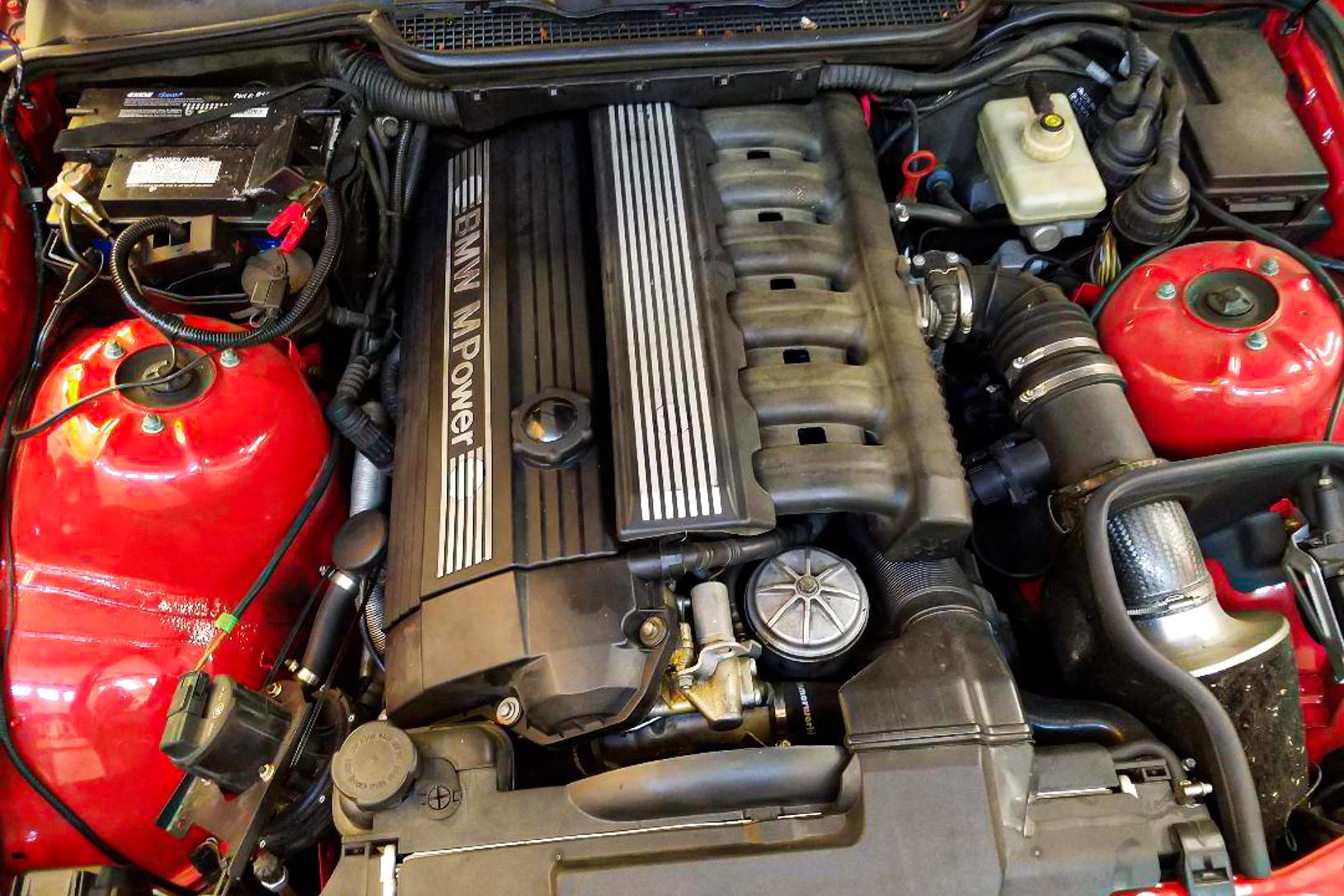Upgrading Your BMW 318ti: Leading Mods and Enhancements
Upgrading Your BMW 318ti: Leading Mods and Enhancements
Blog Article
Crucial Factors To Consider for Choosing the very best Engine for Your Requirements
In the realm of choosing the optimal engine to satisfy your demands, several essential factors demand thorough consideration to make certain optimal efficiency and performance. From the nuanced balance in between power and efficiency to the often-overlooked aspects of upkeep and service needs, each element plays an essential duty in identifying one of the most suitable engine for your specific demands. As the intricacy of engine modern technologies remains to advance, critical one of the most fitting alternative demands a deep understanding of the interaction between various considerations. By discovering the complex web of variables that underpin this decision-making process, a clearer path arises in the direction of picking an engine that not only meets however exceeds your assumptions.
Power and Efficiency
When assessing engines for optimal performance, it is essential to prioritize both power output and performance. Power output measures the ability of an engine to generate power, which straight affects its efficiency. A high power outcome is vital for demanding jobs such as sturdy applications or high-speed demands. It ensures that the engine can handle the workload successfully and effectively. Power alone is not enough; effectiveness plays a considerable duty in establishing the general efficiency of an engine. Effectiveness refers to just how well the engine transforms fuel right into usable power. An extra effective engine will provide better gas mileage, reduced exhausts, and decreased operating expense. Striking the appropriate equilibrium between power outcome and efficiency is vital to selecting an engine that fulfills your certain demands. When making this choice, it is important to consider variables such as the meant usage of the engine, ecological effect, and long-term price effects. By very carefully examining both power and performance, you can select an engine that provides ideal performance and meets your needs successfully.
Fuel Effectiveness and Economy
Gas effectiveness refers to the engine's capacity to convert gas into power with minimal waste, directly impacting operating expenses and environmental sustainability. Engines with greater gas performance not only reduce gas expenditures yet also lower carbon exhausts, adding to a greener procedure.

Compatibility and Application
Considering the gas efficiency and economy of an engine, the following essential facet to address is its compatibility and application within particular functional contexts. Compatibility refers to exactly how well the engine integrates with the general system or equipment it powers. It includes anchor factors such as physical dimensions, placing options, electrical user interfaces, and control systems. Guaranteeing compatibility is important to stop concerns such as overheating, resonances, or power imbalances (bmw 318ti).
Moreover, the application of the engine is similarly essential. Various engines are developed for certain objectives, whether it be commercial equipment, marine vessels, vehicles, or power generators. Recognizing the intended application enables the choice of an engine that can provide the needed power outcome, torque, and functional characteristics. A high-revving engine designed for performance see this here cars would not be ideal for heavy-duty construction equipment that requires high torque at low speeds.
Upkeep and Service Demands
Maintenance and solution needs play an important duty in guaranteeing the durability and optimum efficiency of an engine. Regular maintenance is necessary to stop break downs, expand the life expectancy of the engine, and maintain its efficiency. When choosing an engine, it is vital to take into consideration the producer's suggested maintenance routine and the schedule of service centers or certified technicians.
Aspects such as the regularity of oil adjustments, filter substitutes, and total evaluations can dramatically impact the engine's performance. Some engines may require more frequent servicing based on their style and usage, while others may have longer periods in between upkeep checks. It is crucial to comply with these solution needs to avoid expensive repair work and unforeseen downtime.

Expense and Budget Factors To Consider
Spending plan restrictions frequently play a significant role in the decision-making procedure when selecting an engine for a certain application. When thinking about the price and spending plan effects of selecting an engine, it is vital to analyze not only the first purchase cost but likewise the long-term costs linked with maintenance, gas consumption, and possible upgrades or repair work. It is critical to strike a balance in between the ahead of time cost of the engine Learn More and its general lifecycle prices to guarantee that the picked engine stays monetarily sustainable throughout its operational life-span.
Aspects such as fuel effectiveness, reliability, and resilience can straight influence the complete price of possession of an engine. While a much more expensive engine may have higher in advance expenses, it can possibly result in reduced upkeep and fuel expenses over time, thus using far better worth in the long run.
Verdict
Fuel effectiveness refers to the engine's capacity to convert fuel right into energy with very little waste, directly affecting operating costs and environmental sustainability.Elements affecting fuel performance consist of engine design, burning effectiveness, and overall performance optimization. Furthermore, picking the suitable fuel kind and quality as suggested by the engine manufacturer can even more improve performance and lengthen engine lifespan.
Engines with good service functions and conveniently available parts can minimize upkeep prices and minimize the time the engine is out of operation - bmw 318ti. It is crucial to strike an equilibrium in between the ahead of time expense of the engine and its total lifecycle prices to ensure that the chosen engine remains financially sustainable throughout its operational lifespan
Report this page